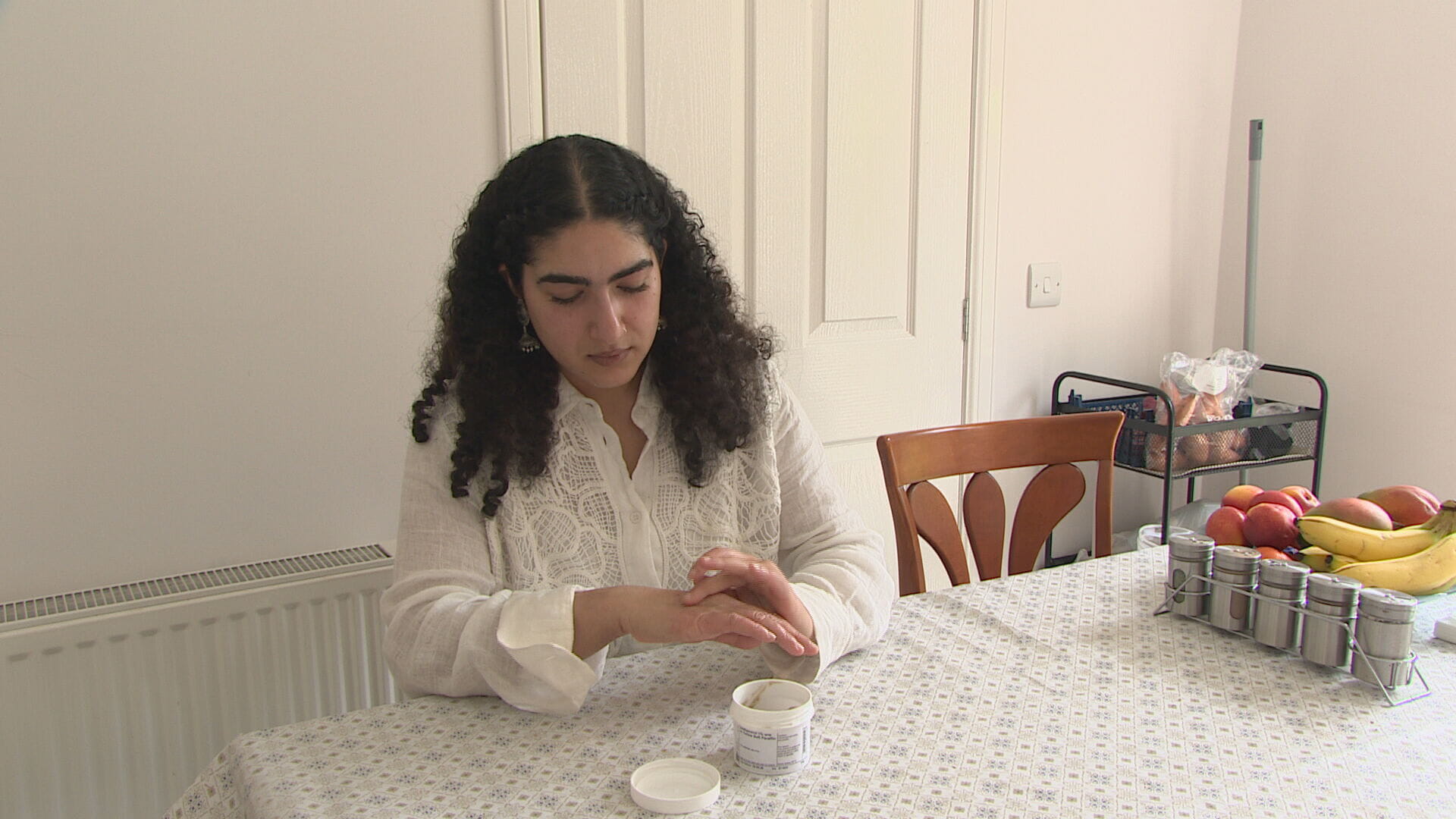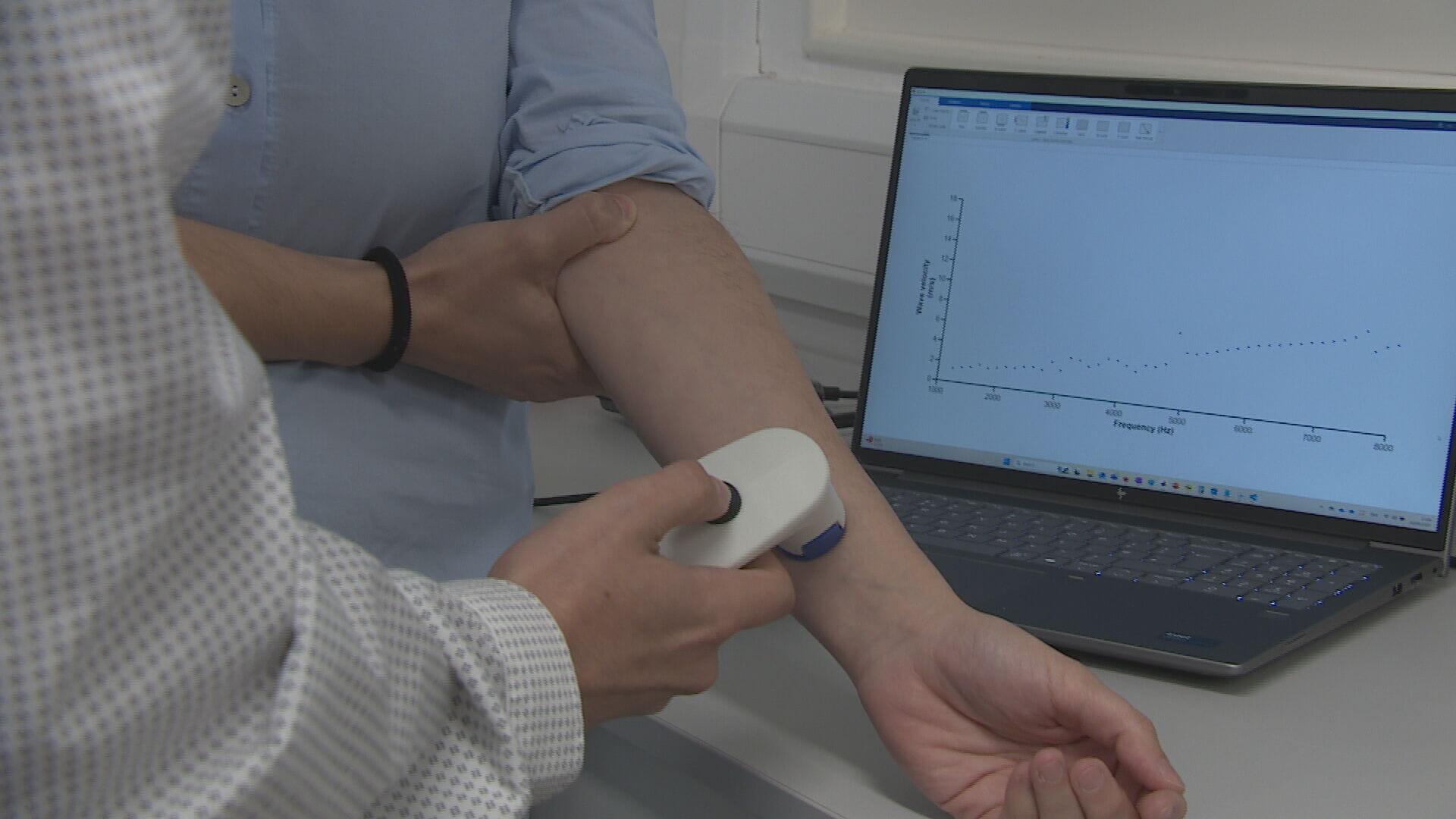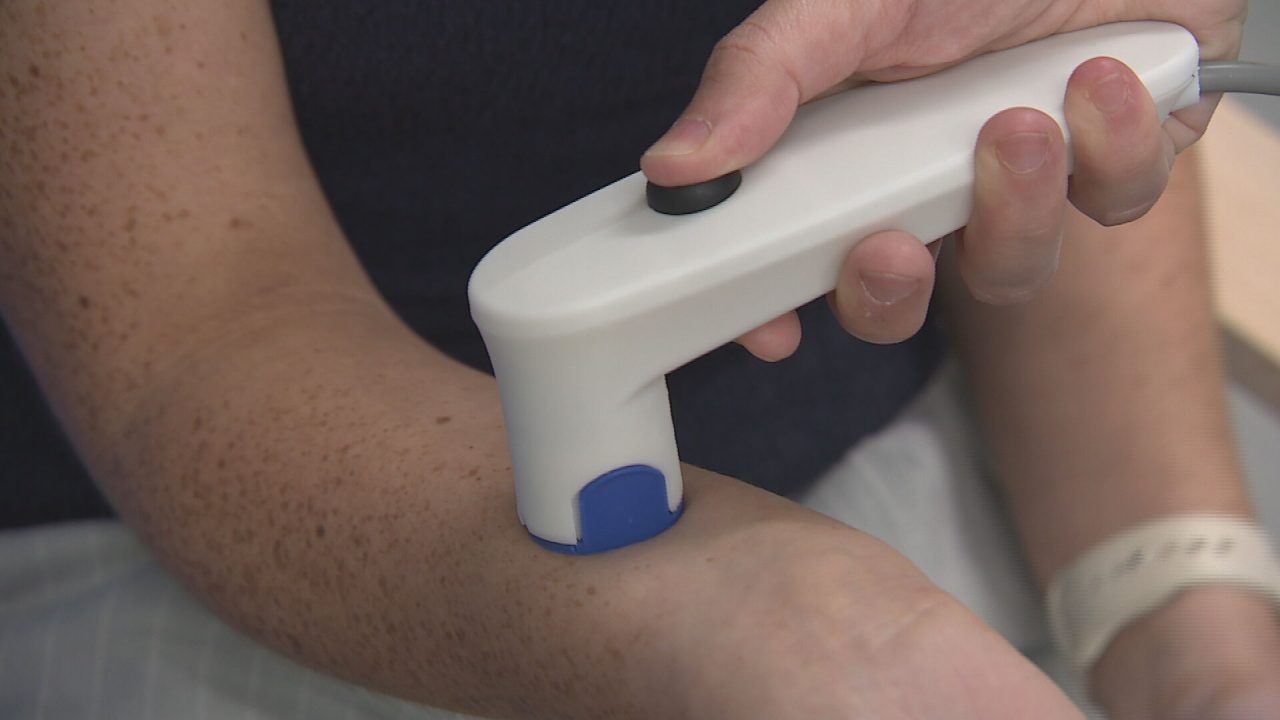For years, people living with eczema have endured endless trial-and-error treatments and long waiting lists to see a dermatologist.
Now, scientists at Heriot-Watt University believe they’ve developed “ground-breaking technology” that could revolutionise how the condition is diagnosed and treated.
The aim is to have the tool available in local pharmacies across the country, easing pressure on the NHS and creating simpler pathways to care.
Asheema Kour, from East Kilbride, has faced a long and frustrating journey toward effective eczema care.
She told STV News: “I’ve had to go through multiple treatments, and within the multiple treatments, I’ve had infections.
“The infections have been worse than the eczema itself, because in their rules, they need you to go through all these medications so that they can then give you what you actually need.”
 STV News
STV NewsSkin colour can play a major role in how accurately conditions are identified, often resulting in undertreatment.
Asheema said: “I’m South Asian – I do have very light skin, I would say, but you can see the inflammation on my fingers.
“But if you have anybody that’s darker than me, then it’s very hard for eczema to be seen on their skin.”
The condition affects up to 20% of children and 10% of adults in the UK, costing the NHS approximately £179m annually in GP visits alone.
Patients can also end up spending around £500 per year on creams, soaps and moisturisers.
Professor Richard Weller, dermatology lead for NHS Research Scotland, said: “At the moment, we’ve got fantastic treatments for eczema, it just takes a lot of clinician time, and it thus limits the number of people we can treat.
“The other thing is a key measure, and that’s how red the skin is, and skin colour determines that; it is easier to see red skin in an alabaster white kilt with red hair than somebody with a darker skin type.”
But there’s hope, new sensor technology designed to detect changes in every layer of the skin could be the answer.
 STV News
STV NewsDeveloped through the TissueMetrics project, the vibroacoustic sensor measures material changes in each layer of skin using small vibrations on the surface.
Dr Connor Bain, a research associate at Heriot-Watt University, explained: “Instead of going through this ‘try this, come back later’ cycle, of many, many creams where you’re giving them for six to eight weeks at a time, we believe we can identify within one week whether a treatment is actually successful and causing improvements to the patients skin.
“What makes our approach particularly powerful is that it works equally well on all skin tones, avoiding the biases that can be common in visual assessments.”
The technology has now received more than £475,000 to move into clinical research.
Dr Michael Crichton from Heriot-Watt University’s Global Research Institute in Health and Care Technologies said: “GPs are under a huge amount of pressure, dermatologists a huge amount of pressure and people are frustrated about the waiting lists.
“We do know that there’s a push to try and bring more digital technologies into the country so that we can actually access the right treatment faster and closer to home.
“Pharmacies and GPs are key to this, and ultimately we want to develop tools that will let them deliver upon that need.”
Follow STV News on WhatsApp
Scan the QR code on your mobile device for all the latest news from around the country





























